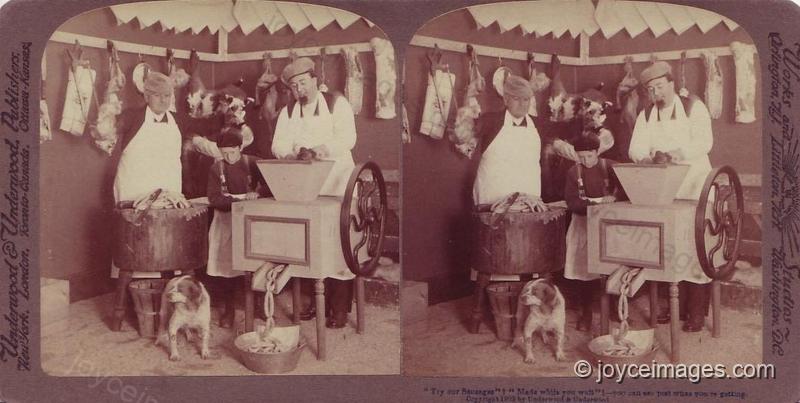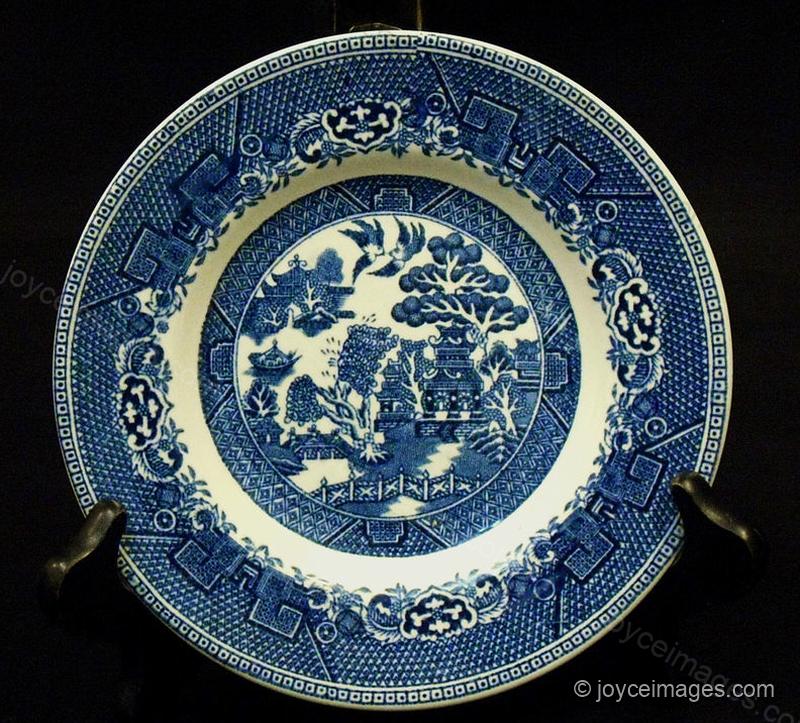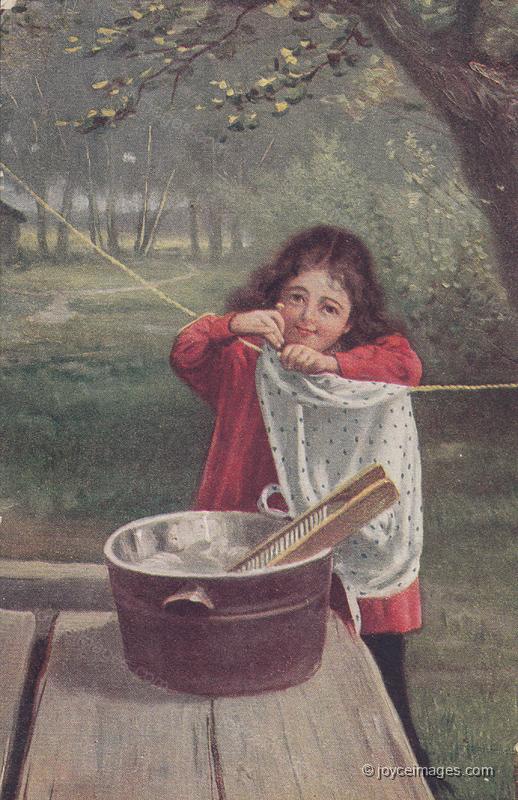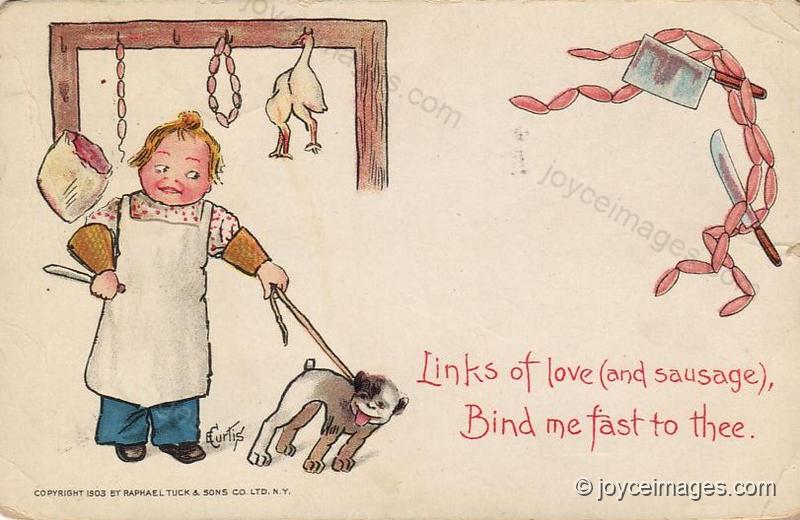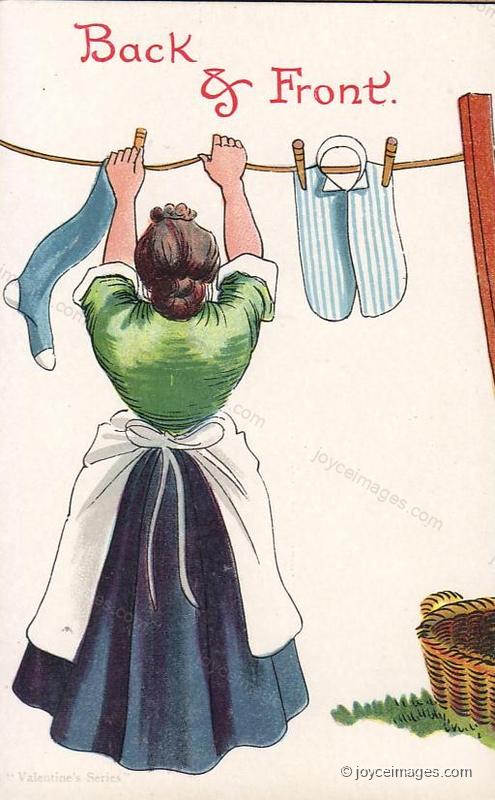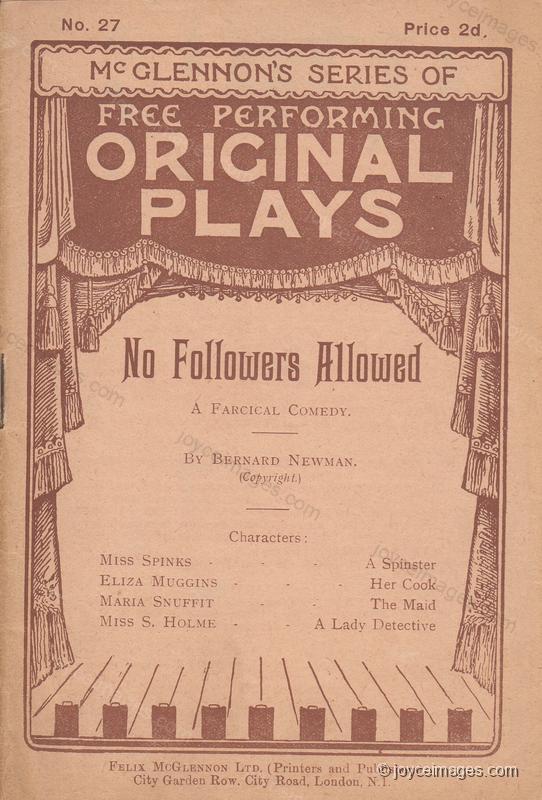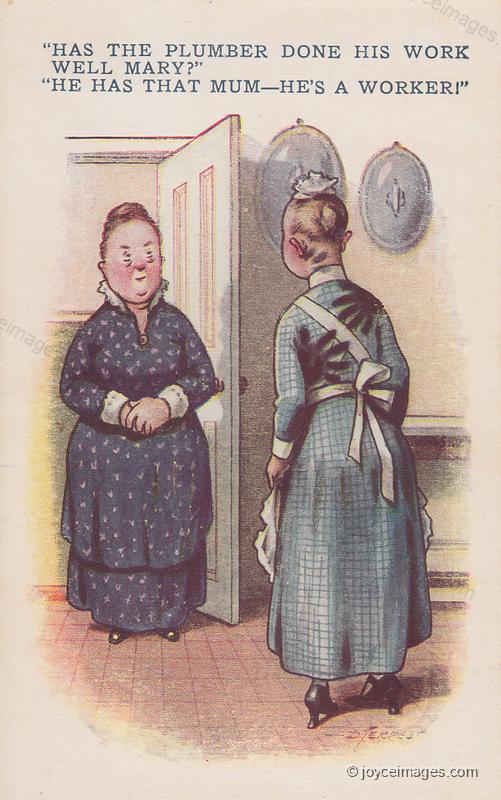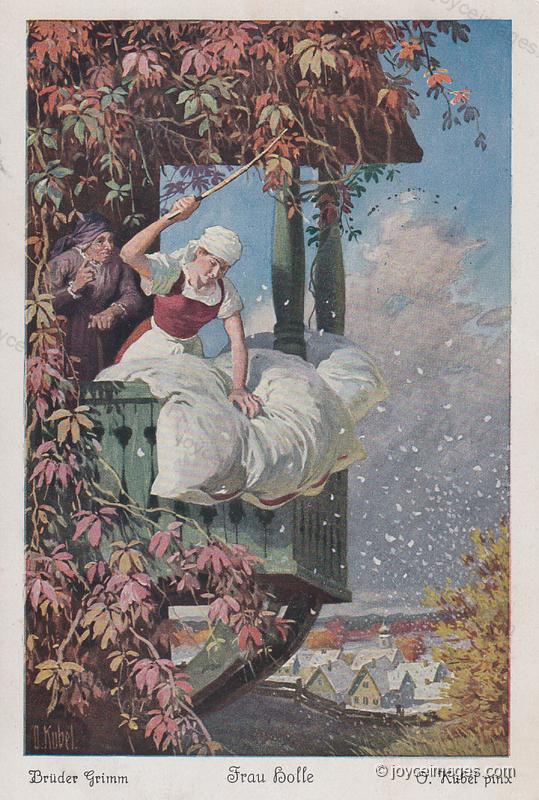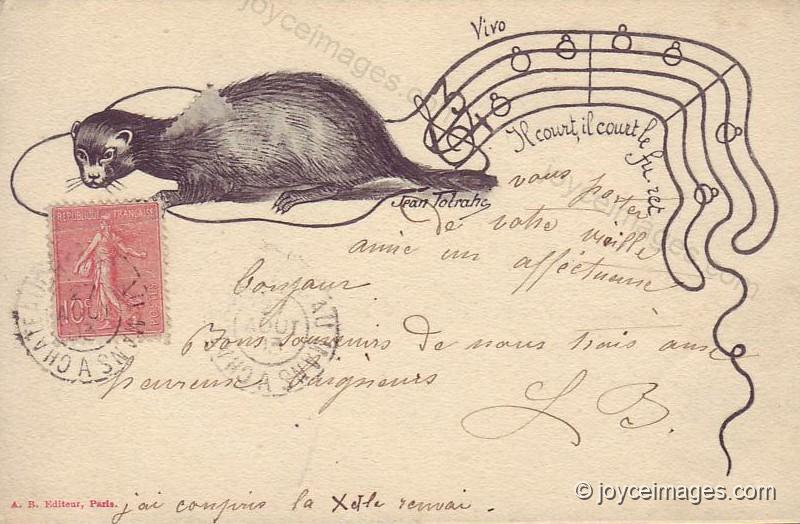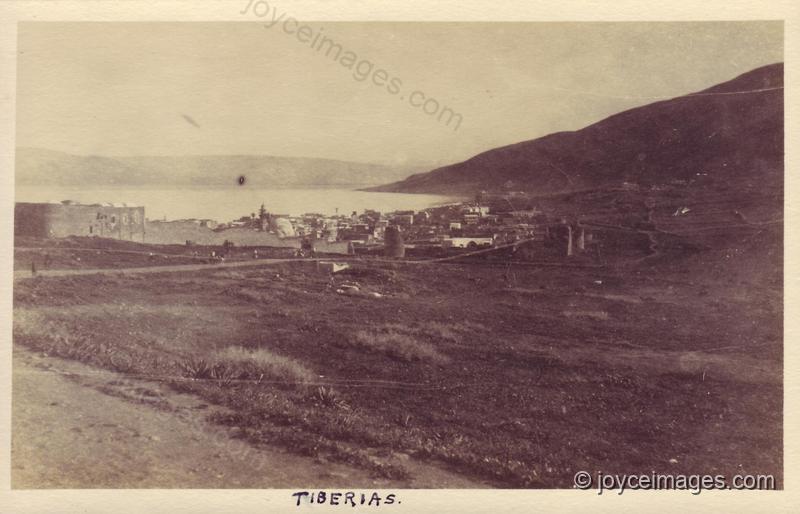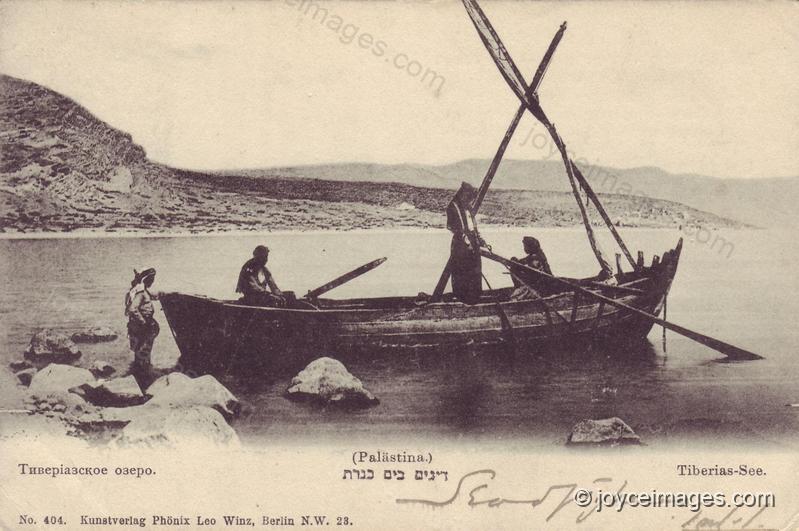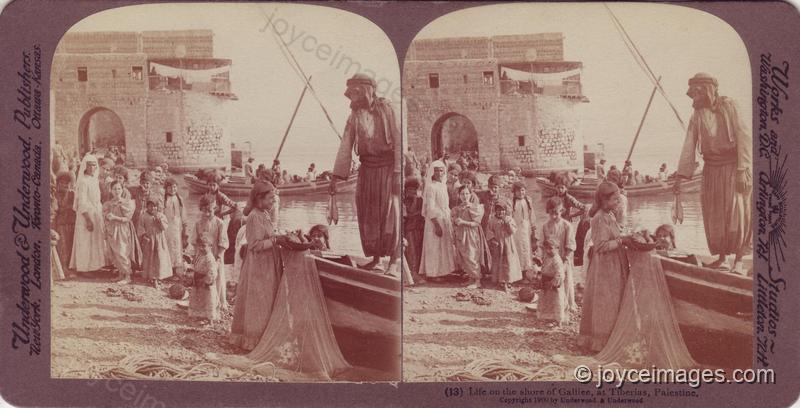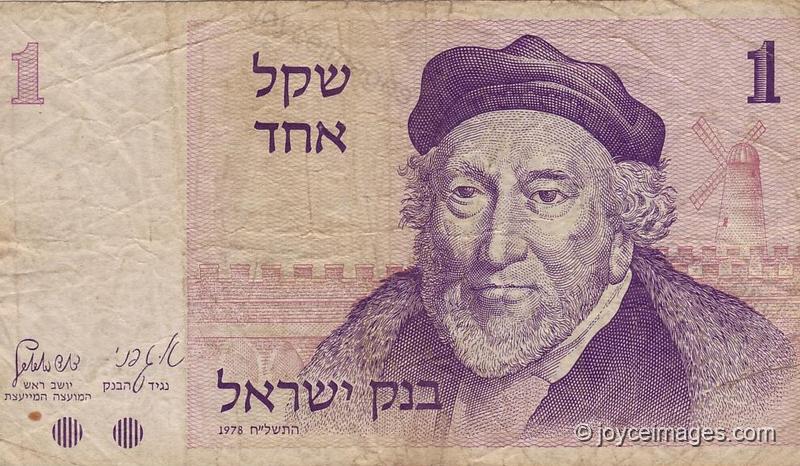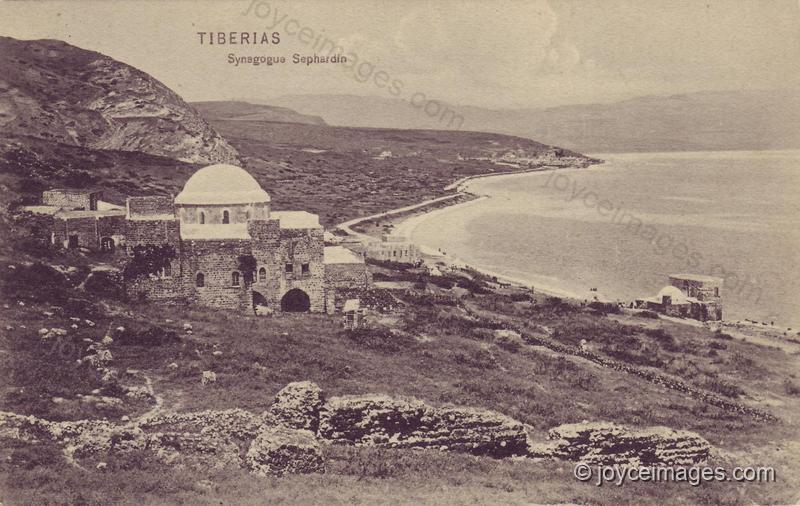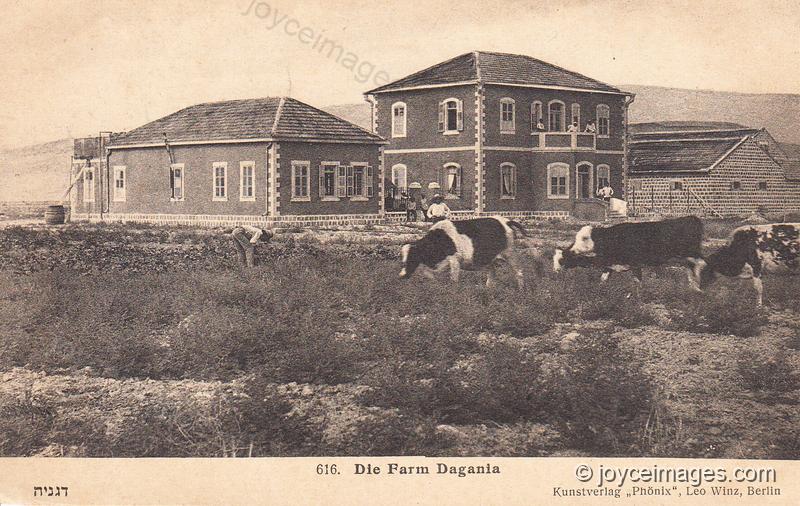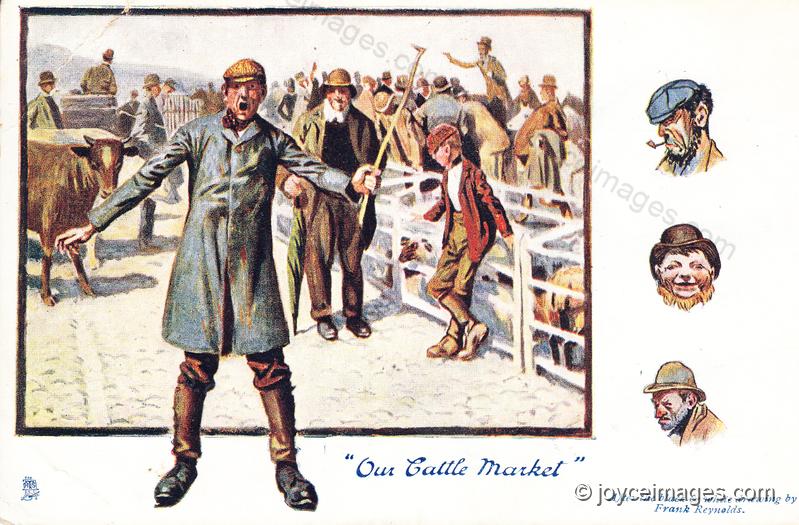"The shiny links packed with forcemeat fed his gaze and he breathed in tranquilly the lukewarm breath of cooked spicy pigs' blood." (U12.142)
"A kidney oozed bloodgouts on the willowpatterned dish: the last. He stood by the nextdoor girl at the counter. Would she buy it too, calling the items from a slip in her hand?" (U4.145)
The Willow Pattern, or Blue Willow, is a distinctive and elaborate pattern used on ceramic kitchen & housewares. It was designed by an English engraver at the Caughley porcelain factory c. 1780, in the 'chinoiserie' style. The landscape has, at the center, a willow tree and two flying doves; on the right a large building with an ornate roof; on the left a smaller building, a variety of trees, and a bridge with human figures; in the foreground a zigzag fence. This is a Willow Pattern bread plate from Wicklow, Ireland.
The Willow Pattern, or Blue Willow, is a distinctive and elaborate pattern used on ceramic kitchen & housewares. It was designed by an English engraver at the Caughley porcelain factory c. 1780, in the 'chinoiserie' style. The landscape has, at the center, a willow tree and two flying doves; on the right a large building with an ornate roof; on the left a smaller building, a variety of trees, and a bridge with human figures; in the foreground a zigzag fence. This is a Willow Pattern bread plate from Wicklow, Ireland.
"His eyes rested on her vigorous hips. Woods his name is. Wonder what he does. Wife is oldish. New blood." (U4.148)
"No followers allowed." (U4.149)
As detailed in John Simpson’s article in JJON the expression “No followers allowed” meant that female servants were not allowed to have men friends.
As detailed in John Simpson’s article in JJON the expression “No followers allowed” meant that female servants were not allowed to have men friends.
"Strong pair of arms. Whacking a carpet on the clothesline. She does whack it, by George. The way her crooked skirt swings at each whack." (U4.150)
"The ferreteyed porkbutcher folded the sausages he had snipped off with blotchy fingers, sausagepink. Sound meat there: like a stallfed heifer.
He took up a page from the pile of cut sheets:" (U4.152)
He took up a page from the pile of cut sheets:" (U4.152)
"Moses Montefiore." (U4.156)
Sir Moses Haim Montefiore (1784 - 1885), born in Italy, was a British Jewish financier, stockbroker for the Rothschild firm, and philanthropist. He was sheriff of London (1837 - 38) and was knighted by Queen Victoria. He retired from finance in the 1820s, devoting his time and fortune to philanthropy, and to the political and civil rights of Jews in Europe and the Middle East. He visited the Holy Land 7 times, built a windmill, schools, hospitals etc, and inspired the founding of agricultural colonies. He was influential in stimulating the rise of Jewish nationalism, the forerunner of Zionism. This is his picture on a 1 Lirot from Israel.
Sir Moses Haim Montefiore (1784 - 1885), born in Italy, was a British Jewish financier, stockbroker for the Rothschild firm, and philanthropist. He was sheriff of London (1837 - 38) and was knighted by Queen Victoria. He retired from finance in the 1820s, devoting his time and fortune to philanthropy, and to the political and civil rights of Jews in Europe and the Middle East. He visited the Holy Land 7 times, built a windmill, schools, hospitals etc, and inspired the founding of agricultural colonies. He was influential in stimulating the rise of Jewish nationalism, the forerunner of Zionism. This is his picture on a 1 Lirot from Israel.
"Farmhouse, wall round it, blurred cattle cropping. He held the page from him: interesting: read it nearer, the title, the blurred cropping cattle, the page rustling. A young white heifer." (U4.156)
"Those mornings in the cattlemarket, the beasts lowing in their pens, branded sheep, flop and fall of dung, the breeders in hobnailed boots trudging through the litter, slapping a palm on a ripemeated hindquarter, there's a prime one, unpeeled switches in their hands. He held the page aslant patiently, bending his senses and his will, his soft subject gaze at rest." (U4.159)
